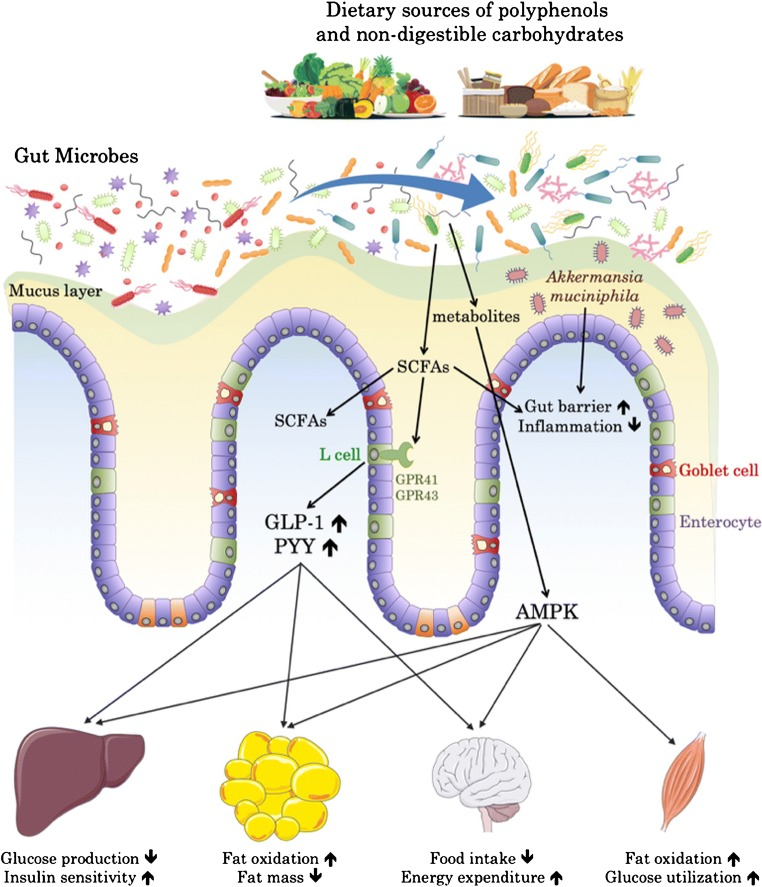By Donnie Yance
Contrary to popular belief, carbohydrates can be powerful allies in your weight loss journey when you understand how to use them properly. There are better carbs and worse carbs, and healthy carbs can actually help you lose weight.
For years, carbohydrates have been villainized in diet culture, portrayed as guaranteed weight-gain culprits. This misconception has been reinforced by the popularity and widely publicized success stories of low-carb approaches like the Atkins and ketogenic diets. However, this oversimplified advice lacks crucial nuance about how carbohydrates actually function in our bodies.
In reality, high-quality carbohydrates, for example from whole grains, play an essential role in fat-burning and metabolic health, and just might be the missing piece in your fitness puzzle.
The Truth Behind Low-Carb Diet Hype
The advice to slash carbohydrates for weight loss has gained traction due to a combination of physiological mechanisms, societal trends, and widespread misconceptions, according to Grace Derocha, registered dietitian nutritionist and spokesperson for the Academy of Nutrition and Dietetics.
“Low-carb diets often produce dramatic initial weight loss primarily because of glycogen depletion and associated water loss,” she explained.
Glycogen is the storage form of carbohydrates found in your liver and muscles to be used for energy. It binds with the water in your body to help with fluid retention. When carbohydrate intake decreases, these glycogen stores deplete rapidly.
“For every gram of glycogen stored, the body retains about 3 grams of water. This rapid weight change is often mistaken for fat loss, making low-carb diets appear highly effective early on,” Derocha told The Epoch Times.
This explains why weight quickly returns when carbohydrates are reintroduced—water weight comes back along with restored glycogen.
The Insulin Misconception
Carbohydrates have been further demonized due to their relationship with insulin, a hormone that promotes fat storage. However, this represents another oversimplification.
“While insulin does play a role in energy storage, weight gain is primarily driven by an overall caloric surplus, not carbs alone,” Derocha emphasized.
Although carbohydrates stimulate insulin release, this is actually a normal and necessary glucose regulation process. The real problem stems from chronic overconsumption of low-quality, processed carbohydrates, not carbohydrates as a macronutrient class.
The Quality Distinction
Consider this scenario: You pick up two oatmeal options at the store. Both claim to be 100 percent whole grain oats. Both have 27 grams of carbohydrates. One takes 30 minutes to cook; the other is ready in 90 seconds. To you, it’s a matter of convenience—but to your body, they’re two entirely different foods.1
Highly processed carbohydrates (sugary snacks, soft drinks, white bread, and refined grains) contribute to the negative perception of all carbohydrates. These options are problematic because they:
- Digest and absorb rapidly, causing glucose spikes and crashes
- Increase hunger and promote overeating
- Lack essential nutrients like fiber, vitamins, and minerals
Understanding how your body processes carbohydrates helps explain why processing matters so much. Think of carbohydrates as chains of sugar molecules that your body has to break apart like a necklace made of pearls. Simple carbs are like a short strand of one or two pearls that your body can snap apart easily. Complex carbs are longer strands of 10 or more pearls, which take more time and effort to digest.
The more processed a carb is, whether by a factory, knife, or blender, the faster it’s absorbed. When that packet of instant oatmeal is refined, much of its natural fiber and structure is stripped away. This allows your digestive system to “clip” those chains almost instantly, leading to a rapid flood of glucose into your bloodstream. Your body has to work less to get the energy, but you might experience an energy crash and feel hungry again soon after.
By contrast, nutrient-dense carbohydrates, fruits, vegetables, and whole grains, support weight management through their high fiber content, which:
- Slows digestion
- Promotes satiety
- Reduces the likelihood of consuming excess calories
These whole fiber-rich carbohydrates, like the rolled oats you have to simmer for half an hour, retain their intact structure. This means your body has to work much harder and longer to break them down, leading to a slower, more gradual release of sugar. That steady supply of energy keeps you feeling full longer and helps regulate your blood sugar more effectively.2
The evidence from a recent large-scale study reinforces a fundamental principle of healthy eating: whole plant foods appear to offer the greatest protection against mortality. While the research specifically examined fat sources, the superior outcomes associated with plant-based fats, particularly those from grains, align with broader nutritional science supporting whole food, plant-based diets. Rather than focusing solely on macronutrient ratios, these findings suggest that the source of our calories matters significantly, with unprocessed plant foods consistently demonstrating protective effects against cardiovascular disease and overall mortality.3
The Metabolic Reality: “Fat Burns in a Carbohydrate Flame”
The saying “fat burns in a carbohydrate flame” highlights a critical metabolic principle often overlooked in low-carb diet discussions. Carbohydrates provide oxaloacetate, a molecule necessary for the body to fully break down fat for energy in the citric acid (Krebs) cycle.
While it’s true that in the absence of carbohydrates the body utilizes fat stores for energy (producing ketones as an alternative fuel source), this process has significant limitations.
“The process of converting body fat back into usable energy takes time,” Julie Stefanski, a registered dietitian nutritionist, told The Epoch Times.
This fat-burning metabolism isn’t efficient enough to meet energy demands during intense physical activity. Without adequate carbohydrates to fuel high-intensity exercise:
- Fatigue sets in more quickly
- Performance suffers
- Overall calorie burn decreases
For optimal fat-burning during exercise, the body needs carbohydrates working alongside fat metabolism, particularly for maintaining higher-intensity activities that ultimately burn more calories.
Scientific Evidence: Low-Carb vs. Moderate-Carb Approaches
What if a diet incorporating moderate, high-quality carbohydrates could deliver results comparable to those promised by low-carb diets?
A comprehensive 2022 Cochrane review 4 analyzing data from nearly 7,000 participants revealed exactly that. The analysis compared:
- Low-carbohydrate weight-loss diets (50–150g daily) or
- Balanced-carbohydrate diets (around 225 to 325g daily)
The findings demonstrated little to no difference in long-term weight-loss outcomes between these approaches.
More recently, a 2024 study from Poland compared high-carbohydrate low-fat diets with low-carbohydrate, high-fat diets, examining their effects on body composition and strength. While both approaches effectively reduced body fat mass, the high-carb group demonstrated more significant muscle gain—an important factor in long-term metabolic health and weight management.
The Carb Sweet Spot: Why Moderate Intake May Be Key to Longevity
A major long-term study tracking over 15,000 Americans for 25 years has revealed surprising insights about carbohydrate consumption and lifespan. The research found that both extremes—very low-carb diets (under 40% of calories from carbs) and very high-carb diets (over 70% of calories)—were linked to higher rates of premature death.
The healthiest approach? Moderate carbohydrate intake, specifically 50-60% of daily calories from whole-food carbohydrate sources, was associated with the lowest risk of early death.5
This finding challenges the “all or nothing” mentality around carbs that dominates many popular diets. Instead, it suggests that balance—and the quality of carbohydrates we choose—may be more important than dramatic restriction or unlimited consumption.
The key takeaway: aim for that middle ground with nutrient-dense, whole-food carbohydrates rather than swinging to either extreme.
Tailoring Carbohydrate Intake to Your Needs
The minimum recommended dietary allowance for carbohydrates is 130 grams per day, just to keep your brain functioning. However, individual requirements vary significantly based on:
- Activity level
- Age
- Body composition goals
- Overall health status
Sedentary individuals may require fewer carbohydrates (toward the lower end of the 45–65% range), while active people benefit from increased intake. Although the body does utilize fat for energy, it relies more on carbohydrates first and foremost, and not having enough carbs available can compromise fat burning and overall performance. The body loves the diversity of having both carbohydrates and fats to burn rather than one over the other.

Practical Strategies for Incorporating Healthy Carbs
If you’ve been following a low-carb diet and suspect it might be affecting your energy levels or fat metabolism, consider these evidence-based approaches:
1. Gradually increase carbohydrate intake
Start with small, easily digestible sources around activity times:
- Fresh fruit before a workout
- Whole grains post-exercise
- Starchy vegetables with dinner
2. Focus on complex, slow-releasing carbohydrates
Choose fiber-rich options that minimize blood sugar spikes:
- Whole grains: quinoa, oats, brown rice, barley
- Vegetables: leafy greens, broccoli, carrots, sweet potatoes
- Fruits: berries, apples, oranges, pears
- Legumes: lentils, chickpeas, black beans, pinto beans
Don’t overlook fruit in your carbohydrate choices. While fruit contains simple sugars like fructose, it also provides beneficial fiber, vitamins, and minerals that help your body process the sugar more effectively. Think of the fiber in fruit as a “knotted mess” that slows how quickly fructose is absorbed. Unlike isolated sugars in sweetened drinks, the natural sugars in fruit are released into your bloodstream more gradually. To help slow down the sugar effect even further, pair fruit with a source of fat, like Organic whole-milk Greek yogurt (or sheep or goat milk yogurt) and/or nuts.6
3. Strategic timing and pairing
Always combine carbohydrates with protein and / or healthy fats to:
- Slow digestion
- Provide sustained energy
- Promote satiety
Smart combinations include:
- Whole-grain toast with avocado and eggs
- Whole milk Greek yogurt with berries and nuts, or a morning smoothie with yogurt, frozen berries, some coconut water, (and for me I add Amino Whey Pro and N-Liven, two of the formulas I developed for Natura Health Products.)
- Apple slices with natural nut butter
- Quinoa salad with vegetables and grilled chicken

Carbs, Fiber, and Polyphenols
Non-digestible carbohydrates and polyphenols present in food can induce a shift in the microbial composition and favor beneficial bacteria like Akkermansia muciniphila. In addition, they can be fermented into short-chain fatty acids (SCFAs) or other metabolites that can either act locally on epithelial cells and their receptors, or enter the blood circulation. SCFAs can activate receptors GPR41/43 and thereby increase GLP-1 and PYY hormone levels, while metabolites from polyphenols are able to activate AMPK in a broad range of tissues. Ultimately, both pathways result in the activation of cellular programs that favor the release of energy and promote energy expenditure.7
Research has shown that certain types of fiber from carbohydrates, such as inulin-type fructans, can positively influence metabolism and body weight regulation. Studies have demonstrated that prebiotic consumption can reduce body weight, fat gain, and insulin resistance while increasing the production of gut peptides like GLP-1(Glucagon-Like Peptide-1) and PYY (Peptide YY), which help regulate appetite and glucose metabolism.8
These effects are largely attributed to short-chain fatty acids (SCFAs) produced during microbial fermentation which interact with specific receptors in the gut. A notable clinical trial in 2018 further revealed that a high-fiber diet improved glycemic control and weight loss in individuals with type 2 diabetes, suggesting that modulating the gut microbiome through diet can have significant metabolic benefits.9
Polyphenols, another class of bioactive compounds found in carbohydrate foods, also play a role in weight management and metabolic health. These compounds, found in tea, coffee, fruits, and spices, have been linked to anti-inflammatory, antioxidant, and metabolism-boosting properties. Some studies suggest polyphenols may reduce fat accumulation by inhibiting digestive enzymes, modulating glucose levels, and increasing energy expenditure.10
Polyphenols also interact with the gut microbiota, influencing its composition and promoting beneficial bacteria such as Akkermansia muciniphila, which is associated with improved metabolic health. The potential of polyphenols as anti-obesity agents is promising and deserves further study.11
When shopping for better carbs, focus on natural sources of fiber. As one nutrition expert notes, “If I gave somebody a goal of 40 to 50 grams of fiber a day from natural sources, it would be very, very hard to eat a lot of junk.” Focusing on fiber from natural sources naturally crowds out ultra-processed carbs and encourages a shift toward whole food carbs.12

Real-World Evidence: Blue Zones and Carbohydrate-Rich Longevity
Some of the most compelling evidence for the health benefits of carbohydrates comes from studying the world’s longest-living populations. The Blue Zones (regions where people regularly live to 100 and beyond) provide fascinating insights into the role of carbohydrates in promoting not just longevity, but also maintaining healthy weight throughout life.
Blue Zone populations consistently consume diets rich in complex carbohydrates from whole food sources:
- Okinawa, Japan: Sweet potatoes, squash, rice, and vegetables form the foundation of the traditional diet
- Sardinia, Italy: Whole grain breads, legumes, and vegetables are dietary staples
- Molochio Calabria Italy: Whole grain breads, legumes, and vegetables are dietary staples
- Nicoya, Costa Rica: Beans, corn, and squash comprise the “three sisters” of their traditional cuisine
- Ikaria, Greece: Whole grains, potatoes, legumes, and seasonal vegetables dominate meals
- Loma Linda, California: Seventh-day Adventists emphasize whole grains, legumes, nuts, and vegetables
These populations typically derive 65-80% of their calories from complex carbohydrates, yet maintain remarkably low rates of obesity, diabetes, heart disease, and cancer. Their longevity secrets aren’t found in carbohydrate restriction, but rather in consuming nutrient-dense, minimally processed carbohydrate sources that provide sustained energy and comprehensive nutrition.13,14,15
From the sourdough loaves of Sardinia to the whole grain breads of Ikaria, these long-lived populations have maintained traditional bread-making practices that prioritize slow fermentation and nutrient-dense grains, a stark contrast to the highly processed breads dominating modern diets.
Anyone that knows me knows that bread is my favorite food and I have written multiple blogs on the health benefits of whole grains, potatoes, and especially bread.
The Blue Zone examples demonstrate that when carbohydrates come from whole foods, paired with active lifestyles, and strong social connections, they support not just healthy weight management, but optimal health throughout a longer-than-average lifespan.
Smart Shopping for Healthy Carbs
When shopping for better carbs, stick to the perimeter of the supermarket—fresh produce, unprocessed animal products, and whole grains that haven’t been heavily modified. While the nutrition facts panel is useful, ingredients matter more.
Key shopping tips:
- Look at fiber content and added sugar on labels
- Read ingredient lists carefully—shorter is usually better
- Avoid foods with many difficult-to-pronounce ingredients
Choose whole grains over refined versions - When you see many ingredients like various sugars, emulsifiers, texture enhancers, and thickeners, that food becomes more troublesome for your body to process efficiently
Practical Implementation and Future Directions
The translation of research findings into practical dietary recommendations requires careful consideration of individual factors including: cultural preferences, personal health status, and lifestyle considerations. However, certain fundamental principles emerge consistently across studies.
A diet rich in diverse plant foods including carbohydrates, particularly those containing fiber, prebiotics, and polyphenols, while limiting known risk factors, appears to offer the most promising approach for healthy weight.
10 Years Of Life
The science is clear and the promise is extraordinary: making the right food choices today can literally add a decade to your life. Norwegian researchers found that switching from a typical Western diet to an optimized one could increase life expectancy by more than 10 years when started early, with significant benefits even for those who begin later in life. The key isn’t eliminating entire food groups—it’s embracing balance with an emphasis on whole plant-based foods.16 Healthy carbohydrates from legumes, whole grains, fruits, and vegetables aren’t the enemy; they’re among your greatest allies for longevity. Combined with nuts, fish, and other minimally processed foods, these nutrient-dense carbohydrates provide sustained energy while protecting against disease. Whether you’re 20 or 80, it’s never too late to start. Every whole grain you choose over refined flour, every bean you add to your plate, every colorful vegetable you include is an investment in years of vibrant health ahead. The path to longevity isn’t about deprivation, it’s about abundance of the right foods that nourish your body and extend your life.
Conclusion
Carbohydrates have long been misunderstood, often blamed for weight gain and poor health. However, science tells a different story. High-quality carbohydrates, such as whole grains, beans, fruits, and vegetables, play an essential role in metabolism, energy levels, and even fat burning. While low-carb diets may lead to quick initial weight loss due to water loss, they are not necessarily more effective in the long run than balanced approaches that include healthy carbs.
Research shows that fiber, prebiotics, and polyphenols, found in many carbohydrate-rich foods, support weight management, gut health, and metabolism. Instead of cutting out carbs entirely, focusing on nutrient-dense, slow-digesting options can improve energy levels, athletic performance, and overall well-being.
The key is balance. By choosing the right types of carbohydrates and pairing them strategically with proteins and healthy fats, you can fuel your body efficiently and support long-term weight management. Rather than fearing carbs, it’s time to embrace their benefits and use them wisely for a healthier longer life.
About the Author:
Donald R. Yance is the founder of the Mederi Center. A Clinical Master Herbalist and Certified Nutritionist, Donnie is renowned for his extraordinary knowledge and deep understanding of the healing properties of plants and nutrition, as well as of epigenetics, laboratory medicine, oncologic pathology, and molecular oncology. He is a professional member of the American Herbalists Guild, National Association of Nutrition Professionals, Academy of Integrative Health and Medicine, and the Society for Integrative Oncology.
References:
1.https://www.theepochtimes.com/health/making-carbs-healthy-again-5873720?src_src=Health&src_cmp=health-2025-07-12&est=cRGXjENxDNtTYeWicAOFyjhUVCY4M9mZhh36cPpekSnY4fpTQraFc%2F45BQFFu3ECfOyfxPCayw%3D%3D, retrieved 7-12-2025
2.https://www.theepochtimes.com/health/making-carbs-healthy-again-5873720?src_src=Health&src_cmp=health-2025-07-12&est=cRGXjENxDNtTYeWicAOFyjhUVCY4M9mZhh36cPpekSnY4fpTQraFc%2F45BQFFu3ECfOyfxPCayw%3D%3D, retrieved 7-12-2025
3. Zhao B, Gan L, Graubard BI, et al. Plant and Animal Fat Intake and Overall and Cardiovascular Disease Mortality. JAMA Intern Med. Published online August 12, 2024. doi:10.1001/jamainternmed.2024.3799
4. Naude CE, Brand A, Schoonees A, Nguyen KA, Chaplin M, Volmink J. Low‐carbohydrate versus balanced‐carbohydrate diets for reducing weight and cardiovascular risk. Cochrane Database of Systematic Reviews 2022, Issue 1. Art. No.: CD013334. DOI: 10.1002/14651858.CD013334.pub2. Accessed 09 March 2025.
5. Elaine St. Peter, Moderate carbohydrate intake may be best for health, The Lancet Public Health, news release, Aug. 16, 2018; https://www.eurekalert.org/pub_releases/2018-08/tl-tlp081518.php
6.https://www.theepochtimes.com/health/making-carbs-healthy-again-5873720?src_src=Health&src_cmp=health-2025-07-12&est=cRGXjENxDNtTYeWicAOFyjhUVCY4M9mZhh36cPpekSnY4fpTQraFc%2F45BQFFu3ECfOyfxPCayw%3D%3D, retrieved 7-12-2025
7. Kruszewski M, Kruszewski A, Tabęcki R, Kuźmicki S, Stec K, Ambroży T, Aksenov MO, Merchelski M, Danielik T. Effectiveness of high-fat and high-carbohydrate diets on body composition and maximal strength after 15 weeks of resistance training. Adv Med Sci. 2024 Mar;69(1):139-146. doi: 10.1016/j.advms.2024.02.008. Epub 2024 Feb 28. PMID: 38428587.
8. Nutrients. The Role of Prebiotics and Probiotics in Human Health. 2021.
9. British Journal of Nutrition. Prebiotic effects of inulin-type fructans on weight management and metabolic health. 2019.
10. Diabetes Care. High-fiber diet improves glycemic control and promotes weight loss in type 2 diabetes. 2018.
11. Van Hul M, Cani PD. Targeting Carbohydrates and Polyphenols for a Healthy Microbiome and Healthy Weight. Curr Nutr Rep. 2019 Dec;8(4):307-316. doi: 10.1007/s13668-019-00281-5. PMID: 31161579; PMCID: PMC6904403.
12.https://www.theepochtimes.com/health/making-carbs-healthy-again-5873720?src_src=Health&src_cmp=health-2025-07-12&est=cRGXjENxDNtTYeWicAOFyjhUVCY4M9mZhh36cPpekSnY4fpTQraFc%2F45BQFFu3ECfOyfxPCayw%3D%3D, retrieved 7-12-2025
13. Buettner D, Skemp S. Blue Zones: Lessons From the World’s Longest Lived. Am J Lifestyle Med. 2016 Jul 7;10(5):318-321. doi: 10.1177/1559827616637066. PMID: 30202288; PMCID: PMC6125071.
14. Giovanni Mario Pes, Maria Pina Dore, Fotini Tsofliou, Michel Poulain, Diet and longevity in the Blue Zones: A set-and-forget issue?, Maturitas, Volume 164, 2022, Pages 31-37, ISSN 0378-5122, https://doi.org/10.1016/j.maturitas.2022.06.004.
15. Chrysohoou C, Panagiotakos DB, Pitsavos C, Das UN, Stefanadis C. Adherence to the Mediterranean diet attenuates inflammation and coagulation process in healthy adults: The ATTICA Study. J Am Coll Cardiol. 2004 Jul 7;44(1):152-8. doi: 10.1016/j.jacc.2004.03.039. PMID: 15234425.
16. Miriam E. Tucker, February 09, 2022, Switching to a Healthy Diet Can Add 10 Years to Life







